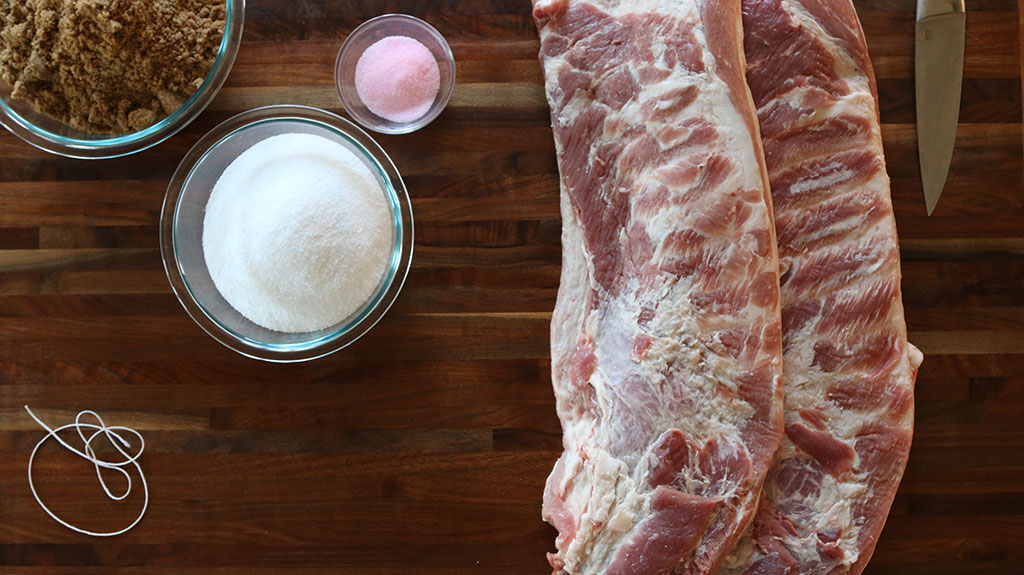

As big agriculture and factory farming overtake mom and pop farms, it is becoming more and more difficult to find butchers who source their meats from farms that do it right. Buying happily raised animals means not only that you'll be using the best flavored meat, but also that you're using your money to support small farms who practice sustainable agriculture.
The first question you should ask your butcher is, "What farm are your pigs from?" Starting out with a doozie of a question like this will separate the good butchers from the bad. A good butcher will tell you the farm, or the satellite of farms, that your pig comes from. If so, then they can probably tell you that your pig was pasture-fed instead of corn-fed in the pen, and if you're lucky, he may tell you that your pig was acorn-fed in the neighboring grove of oak trees.
Is it clean? You can often judge a butcher based on the cleanliness of their work space. When it comes to cutting meat, blood happens. So, don't expect a blood-free environment. But keep an eye on the floor, the meat storage area, and even the butcher's apron. Too many random parts in random places means that the butcher isn't paying attention to the details, and that could mean bad things for the santitation of your meat.
When you find a great butcher, you'll know it. They'll hand you 20 pounds of pork belly or 10 pounds of pork shoulder, state which farm it's from, and ask you what you're making. When you become a repeat customer, you'll begin swapping recipes, and soon he'll share his secret weisswurst recipe with you.